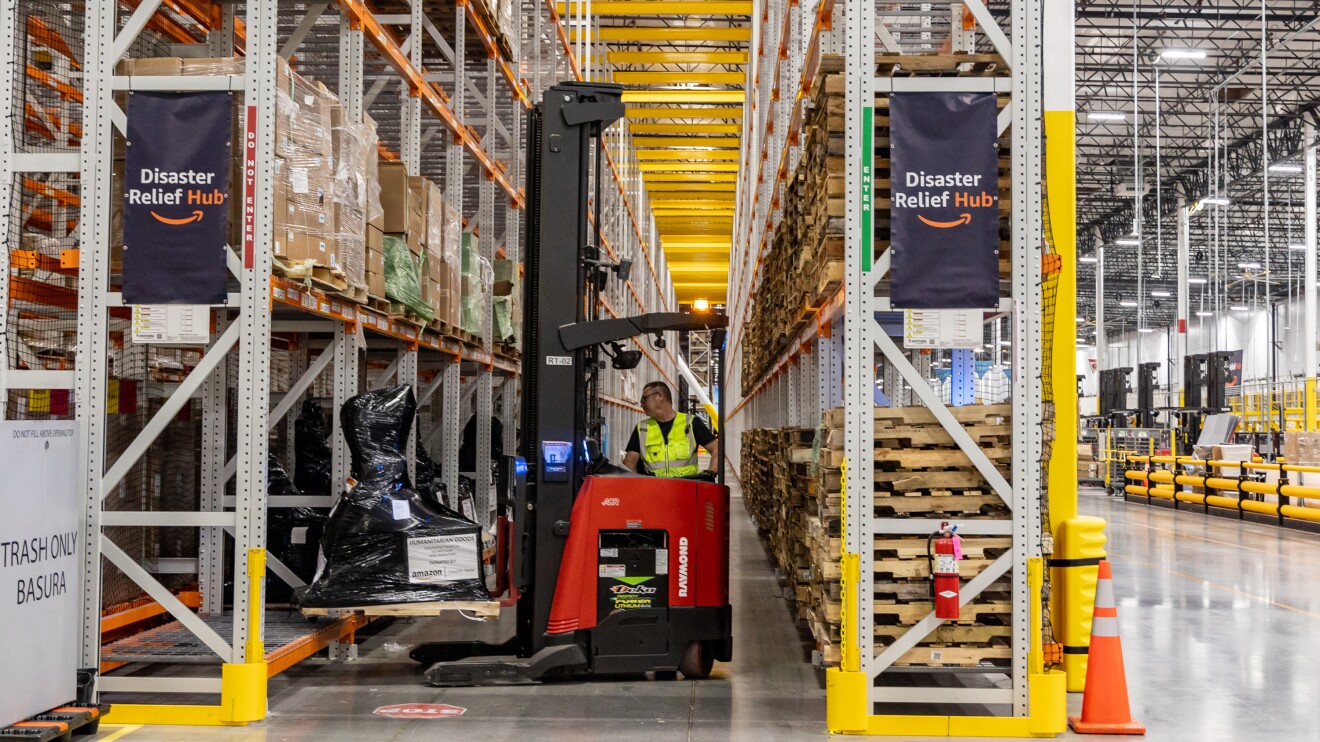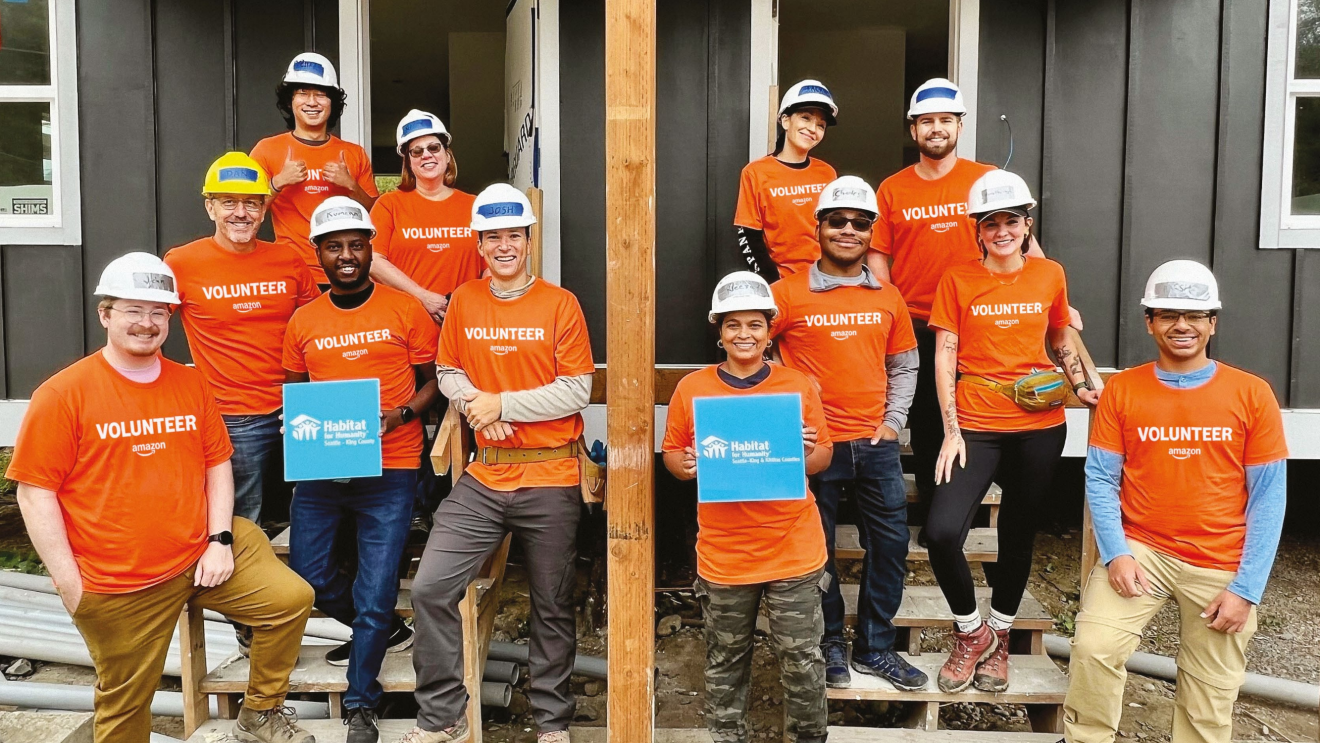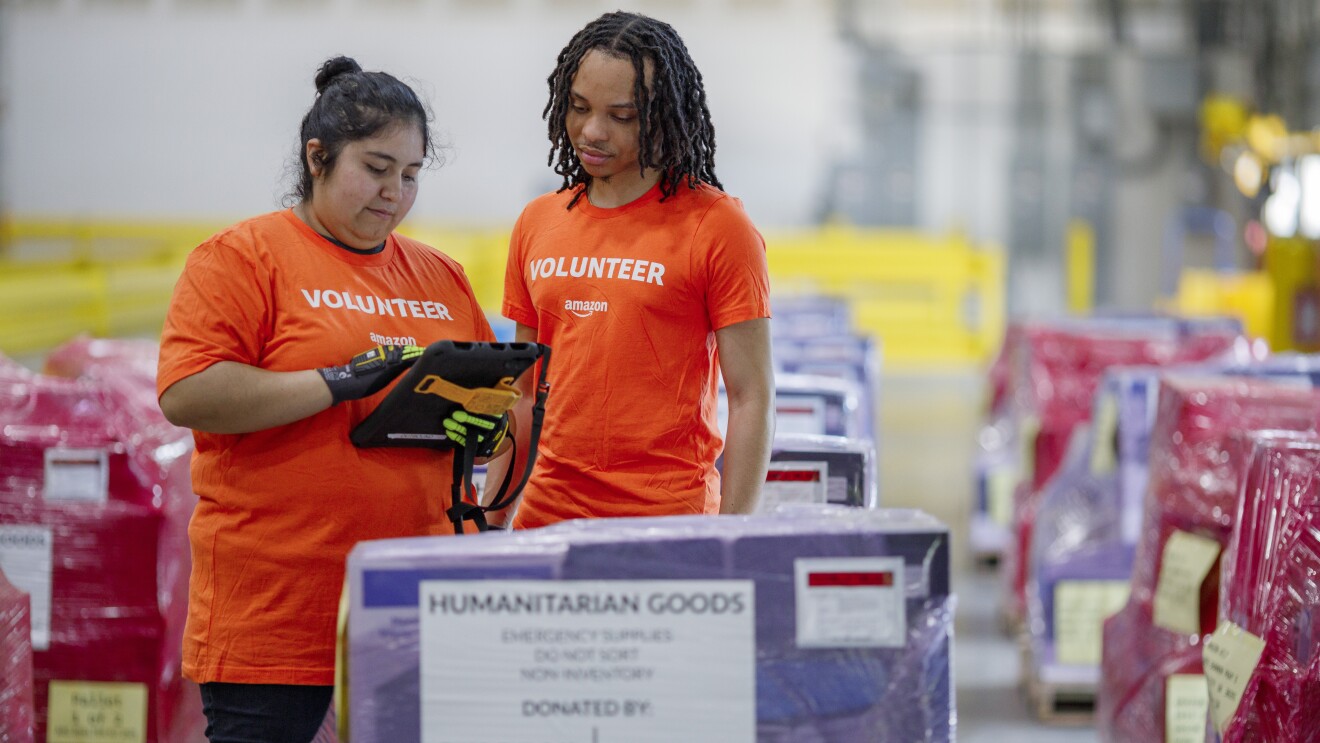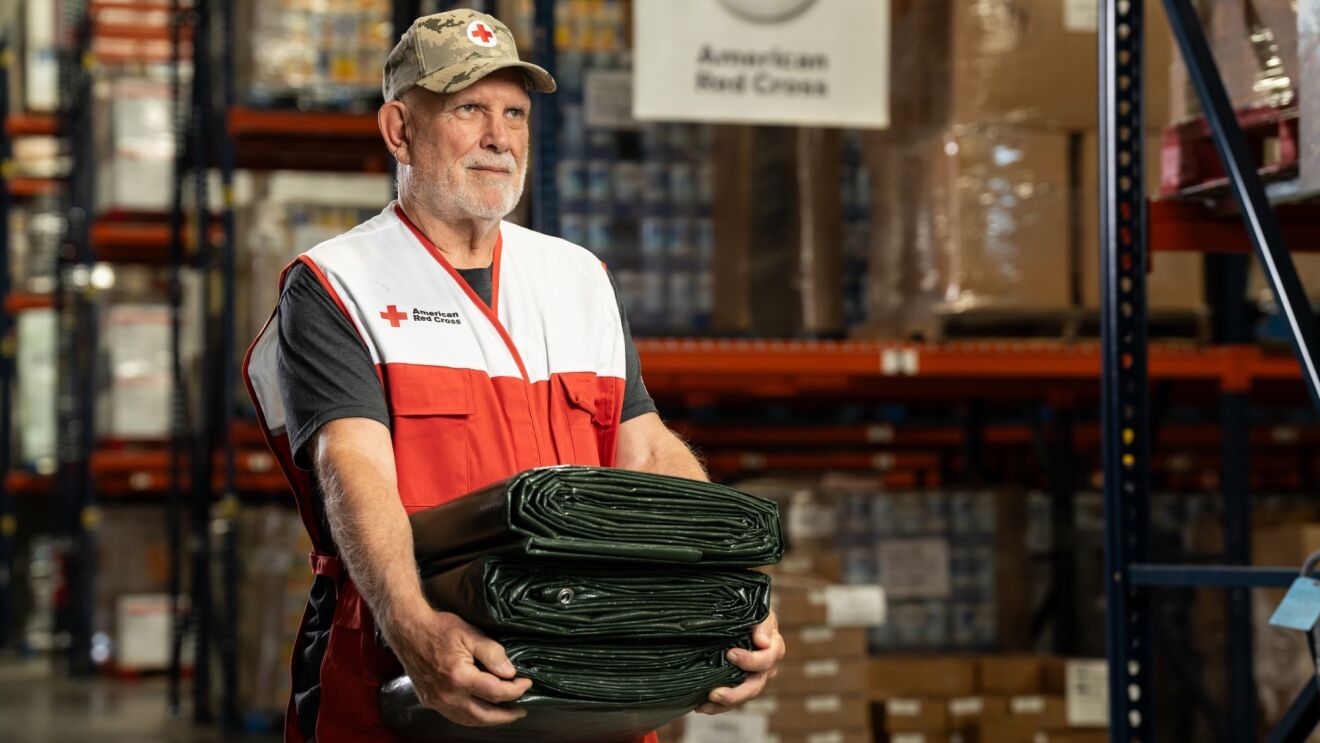When we announced our more than $2 billion Housing Equity Fund in January, we knew that any sustainable and impactful solutions to the affordable housing crisis would require us to work with both traditional and non-traditional partners. Today’s announcement of a more than $300 million commitment toward transit-oriented affordable housing development will allow us to create an estimated 3,000 new affordable housing units on land owned by transit agencies or privately owned land in close proximity to public transit. Transit-oriented development (TOD) is a unique approach to preserving and creating affordable housing options so moderate- to low-income families can afford to live near—and benefit from—quality public transit. When successful, TOD has a range of benefits, including greater economic activity, reduced traffic congestion and associated environmental benefits, and a strengthened, more resilient labor force. Amazon is providing developers with fast access to capital at below-market rates to both expedite and create affordable homes that could otherwise be lost to market-rate developers.
By investing $300 million of Amazon’s $2 billion Housing Equity Fund in transit-oriented housing development, moderate- to low-income families in Puget Sound, Arlington, and Nashville will be able to reduce their expenditures on housing while gaining easy transit to jobs and amenities. We hope this will pave a path for more inclusive communities.
Jay Carney
Senior Vice President, Global Corporate Affairs.Amazon will work closely with public transit agencies to fund development on either surplus land owned by the agencies or privately owned land near active transit corridors to create new, affordable, and move-in ready homes by as early as 2025. This new wave of investments includes $125 million in below-market loans to developers working with the Washington Metropolitan Area Transit Authority (Metro) to create more than 1,000 new homes in the Washington, D.C. area; $100 million in below-market loans to developers working with Sound Transit to accelerate creation of up to 1,200 homes in Washington state’s Puget Sound region; and $75 million to developers to create an estimated 800 homes on private land in Nashville, Tennessee, near high-capacity WeGo transit corridors.
“Transportation and housing costs account for a significant portion of the average person’s expenses,” said Jay Carney, senior vice president, Global Corporate Affairs. “By investing $300 million of Amazon’s $2 billion Housing Equity Fund in transit-oriented housing development, moderate- to low-income families in Puget Sound, Arlington, and Nashville will be able to reduce their expenditures on housing while gaining easy transit to jobs and amenities. We hope this will pave a path for more inclusive communities.”
According to research from the Center for Neighborhood Technology, 55% of U.S. neighborhoods are affordable to a typical household; however, when transportation costs are taken into consideration, only 26% of U.S. neighborhoods are actually affordable to a typical household. Furthermore, a 2019 report by the U.S. Bureau of Labor Statistics shows that the average household nationally spends 13% of their income on transportation costs—the second highest expense after housing. This percentage increases for households making 80% of area median income and below—households that are disproportionately in communities of color.
Recognizing that there’s no one-size-fits-all answer to affordable housing, we’ve taken a unique approach in each of our hometown regions to work with transit agencies in the most efficient, expedient, and regionally pragmatic ways possible.
Arlington, Virginia
In Arlington, we are teaming up with Metro, which operates the Washington region’s rail, bus, and paratransit service, to create 1,000 new affordable housing units on property owned by Metro at their stations throughout the region. Amazon is committing $125 million in below-market capital of which $25 million is set aside to fund development led by minority developers, as part of the Fund’s goals to include and grow capacity of minority-owned and -led businesses and organizations. These units will give families access to housing at Metrorail stations and other transit sites, making amenities and community resources more accessible. This is Amazon’s second Housing Equity Fund partnership in the greater Washington region; it follows our investment of $381.9 million in below-market loans and grants to the Washington Housing Conservancy to preserve and create up to 1,300 affordable homes on the Crystal House property in Arlington, which we announced in January 2021.
"Transit-oriented development has a proud legacy at Metro, and with this investment from Amazon we can continue to help the region tackle the challenges of housing affordability, congestion, and sustainability," said Metro general manager and CEO Paul J. Wiedefeld. "Having a philanthropic partner in this effort, along with the support of the public and private sectors, puts the region on the best path possible to meeting our shared housing, transit, equity, and economic prosperity goals."
Increasingly, we are facing an affordable housing crisis across the entire Puget Sound region, and Sound Transit is expanding rail service into communities that are becoming less and less affordable for working families.
Peter Rogoff
Sound Transit CEOPuget Sound region
Amazon is partnering with Sound Transit to accelerate the creation of up to 1,200 new affordable housing units on Sound Transit surplus properties near light rail stations across the Puget Sound region. Amazon’s commitment of $100 million in below-market funding will help create and significantly expedite the development of Sound Transit property planned for affordable housing. The first $25 million will fund pre-development activities like site due diligence, engineering, and permitting, while the remaining $75 million will support the direct creation and construction of new affordable housing, which is expected to begin within five years. The partnership will help ensure that moderate- to low-income families can afford to live in great neighborhoods with easy access to employment, schools, healthcare, education, and other amenities.
This commitment builds on Amazon’s previous Housing Equity Fund commitment of $185.5 million in below-market loans and grants to the King County Housing Authority to preserve up to 1,000 affordable homes in Bellevue, Washington.
"Increasingly, we are facing an affordable housing crisis across the entire Puget Sound region, and Sound Transit is expanding rail service into communities that are becoming less and less affordable for working families,” said Sound Transit CEO Peter Rogoff. “We have a forward-leaning policy of partnering with developers to facilitate affordable housing near our stations, but obtaining the necessary funding to build those units has always been a challenge. Amazon’s $100 million commitment to help fill that gap and make transit more accessible to those who need it the most is truly welcome and appreciated."
Nashville, Tennessee
Amazon is committing $75 million in below-market capital for developers to create approximately 800 affordable homes in Nashville, Tennessee, on privately owned land within a half-mile of WeGo transit corridors. Amazon will choose the development partners for housing construction. WeGo is the primary regional transit agency operating bus and paratransit service across Nashville, serving approximately 30,000 riders daily, including many middle- and lower-income riders. Amazon will choose the development partners for housing construction over the next five years and will focus on affordable properties within a half-mile of transit stops and prioritize opportunities to invest in minority-led organizations and racially and economically diverse communities.
"Nashville must be a city that works for everyone,” said Nashville Mayor John Cooper. “And—in a city that works for everyone—everyone who works here should be able to live here. Nashville’s affordable housing needs are urgent, and Amazon’s commitment today will support our work to create and preserve more affordable home for families."
Trending news and stories









